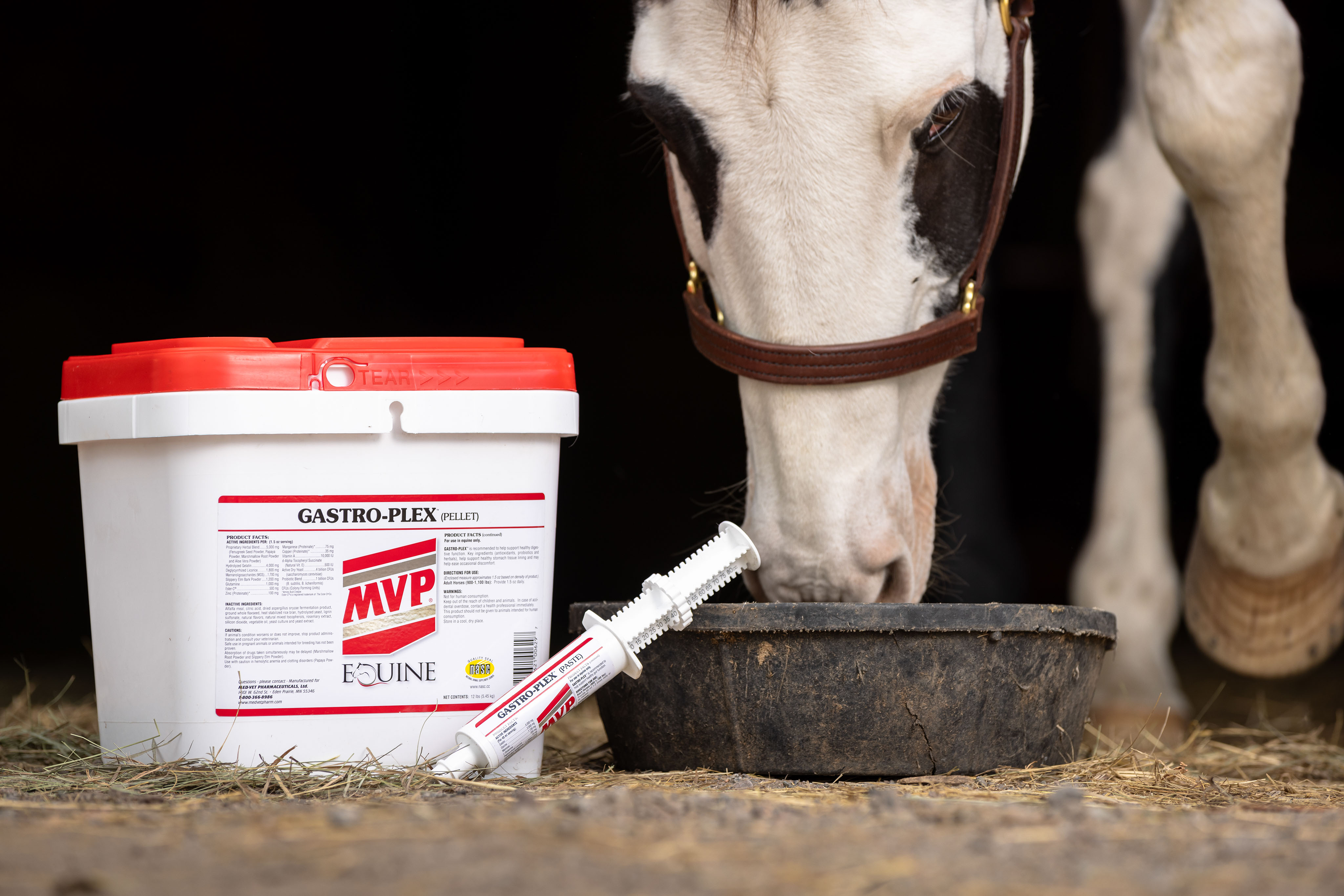Your horse’s digestive system is powerful, but it wasn’t built for life in a stall, big grain meals, or stressful training schedules. It was designed for constant grazing, slow intake, and steady movement. When we feed outside of those natural rhythms, things can quickly go sideways.
Let’s take a closer look at how your horse’s digestive system works and what really happens when it's pushed off balance.
Built for Grazing, Not Grain
A horse’s digestive system starts working the moment they take a bite. It’s a long and complex journey from the mouth to the hindgut, relying on chewing, steady flow, and microbial balance to break down feed and absorb nutrients.
The key? Fiber first.
Horses are meant to eat forage throughout the day. Hay, grass, and roughage keep everything moving and help buffer the constant flow of stomach acid.
When that system is fed high-starch grain or sweet feed, the small intestine can’t absorb it all. What doesn’t get digested there ends up in the hindgut, where it ferments and that’s where problems start.
How Excess Starch Disrupts Digestive Balance
When horses consume large amounts of grain or sweet feed, the digestive system can’t fully process all the starch in the small intestine. The leftover starch travels to the hindgut, where it undergoes fermentation by microbes.
This fermentation produces acids that lower the pH level in the hindgut, creating an environment that’s harmful to the good bacteria essential for healthy digestion. As these beneficial microbes decline, inflammation begins, and the protective lining of the gut can break down.
This chain of events sets the stage for painful hindgut ulcers and digestive upset. Issues that are difficult to detect but have a major impact on your horse’s health and behavior.
What to Watch For
Signs of digestive imbalance or hindgut irritation are often subtle, or misread as behavioral:
- Girthiness or belly sensitivity
- Loose stool or inconsistent manure
- Mood swings, spookiness, or sour attitude under saddle
- Muscle loss despite high-calorie feed
- A horse that just doesn’t seem “right”
- These aren’t training problems. They’re red flags from the gut.
Support From the Inside Out
Daily digestive support is essential to help your horse’s gut manage stress, dietary changes, and the natural shifts in pH and microbial balance that occur in the digestive tract. A quality gastric supplement works by strengthening the stomach lining and promoting a healthy environment for beneficial gut microbes.
Gastro-Plex™ is formulated to support healthy stomach function and protect the stomach’s delicate lining. It also contains Levucell SC, a probiotic ingredient shown to reduce the risk of colic and other digestive issues by supporting a balanced hindgut.
Maintaining your horse’s gastric health is a daily commitment because prevention is the best way to keep your horse comfortable, performing well, and feeling their best.

